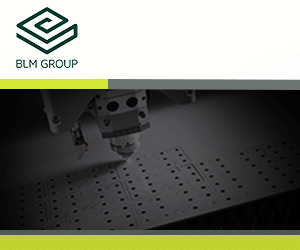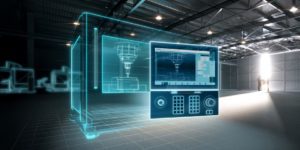Manufacturing Software Supports Additive Manufacturing
DP Technology’s Esprit CAM software program supports 3-, 4-, and 5-axis directed energy deposition (DED), a form of 3D printing that uses a focused energy source such as a laser or electron beam to melt material.
Posted: October 9, 2020
For centuries, the manufacturing industry has relied on subtractive machining. But over the last two decades, additive manufacturing—commonly known as 3D printing—is becoming more common.
As one of the main additive manufacturing processes, directed energy deposition (DED) uses a focused energy source, such as a laser or electron beam, to melt the material. The ability to control the grain structure of a part makes DED a good solution for repairing functional metal parts. For example, DED is often applied to rebuild large, expensive, and high-wear components for aerospace, energy, or marine industries, such as turbine blades, drill heads, or propellers.
DED is also one of the few metal 3D printing technologies suitable for integration into CNC machines to create a hybrid manufacturing solution. By mounting a deposition nozzle on a multiaxis machining system, highly complex metal parts can be produced faster and with increased flexibility.
To satisfy this growing market, DP Technology (Camarillo, CA) has added 3-, 4-, and 5-axis DED capability to its Esprit CAM software. Combined with subtractive processes and embedded into a single software, the platform brings a full spectrum of support to hybrid manufacturing.
The new additive cycles offer a full-spectrum solution, from CAD file to finished part, and include simulation and verification. The company validated the post processor through collaboration with major machine manufacturers and educational institutions.
















